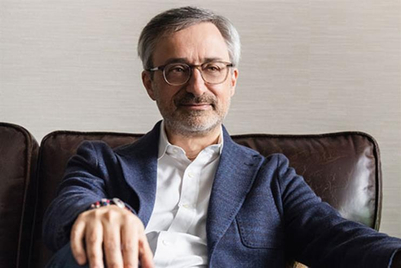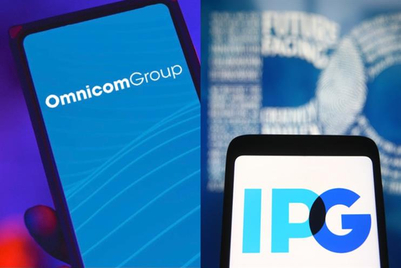
Michael Roth is to retire as executive chairman of Interpublic, a year after he handed over the chief executive’s responsibilities to Philippe Krakowsky in a smooth transition.
Roth, who turns 76 later this month, will leave IPG, the world’s fourth largest agency group, at the end of 2021.
It is understood that his departure marks the formal end of his involvement in the ad industry after nearly two decades at the top.
That contrasts with two of his long-serving peers, Maurice Lévy of Publicis Groupe and Sir Martin Sorrell, formerly of WPP and now at S4 Capital, both of whom have continued to work in high-profile roles, rather than retire at a similar age.
A source close to the company said Roth always planned to step down as executive chairman once a new CEO had settled in to the role, and the board felt the timing was right for him to retire, because IPG, which owns the McCann, FCB, R/GA, Initiative, UM and Weber Shandwick agencies among others, has been recovering strongly from the pandemic.
IPG has twice upgraded its revenue forecasts for 2021, most recently at its Q3 results, when it reported organic revenue was up 10.7% on 2019 levels – well ahead of the other “big six” agency groups.
The stock price has reached its highest level since the dot-com bubble two decades ago and is up 50% since the start of the year. Its $14bn valuation is not far short of US rival Omnicom, which used to be significantly ahead.
Roth, a former tax lawyer and ex-CEO of Mony Group, joined Interpublic’s board as an independent director in 2002 and became chairman in 2004 when the company was mired in financial difficulties. He added the CEO’s role a year later.
“My time as chairman and CEO of IPG has been a tremendous privilege. I am most proud of the work we have done to help shine a light on equity and inclusion, as well as being a values and purpose-driven enterprise," Roth said.
“Operationally, we have evolved to meet the needs of an industry that is not only creative, but also increasingly about digital and data,” he added, in a nod to the 2018 purchase of Acxiom.
“Philippe has been key to the efforts to move the company forward on all these fronts, working with me and the board to build a contemporary organisation that delivers high-value services for marketers. Our clients, people and shareholders are in very good hands going forward.”
Krakowsky, a long-serving lieutenant when Roth was CEO, thanked him for his “thoughtful, measured and principled leadership” while Thomas praised Roth for “making IPG the advertising sector’s top-performing company across a range of key financial and operational metrics” since before the pandemic.
IPG’s decision to appoint a non-executive chairman is expected to win the approval of shareholder advisory groups, which prefer a chair to be independent, rather than hold executive responsibilities, in the interests of corporate governance.
“Good succession planning can happen in our industry”
One person close to IPG said Roth’s orderly exit showed “good succession planning can happen in our industry”.
Roth is one of four advertising chiefs – along with Lévy, Sorrell and John Wren of Omnicom – who have dominated the agency sector as it went global in recent decades. However, he he is the only one who has fully stepped back.
Lévy has been chairman of the supervisory board of Publicis Groupe since 2017 after a 30-year stint as chief executive, Sorrell has been executive chairman of S4 Capital since 2018, following his abrupt exit from WPP after 32 years as chief executive, and Wren has been chief executive of Omnicom for 24 years since 1997 and added the role of chairman in 2018.
Michael Kassan, chairman and chief executive of MediaLink, the media consulting firm, said Roth deserved credit for embracing the advertising business when he was an outsider.
"Michael Roth was a legendary business person in his work life before joining Interpublic, and assumed his position in the advertising industry in an amazing way [when he moved from external director to serve as CEO],” Kassan recalled.
“He became of the business, though he wasn’t from the business, by embracing it fully. Essentially, Michael learned on the job, and led Interpublic out of a significant crisis and back to health.
“By shining a spotlight on diversity, and walking the talk before any of his peers, he also led the way for his adopted industry on the vital issues of equity and inclusion.”




.jpg&h=334&w=500&q=100&v=20250320&c=1)

.jpg&h=334&w=500&q=100&v=20250320&c=1)


.jpg&h=334&w=500&q=100&v=20250320&c=1)

.png&h=334&w=500&q=100&v=20250320&c=1)



.jpg&h=268&w=401&q=100&v=20250320&c=1)



